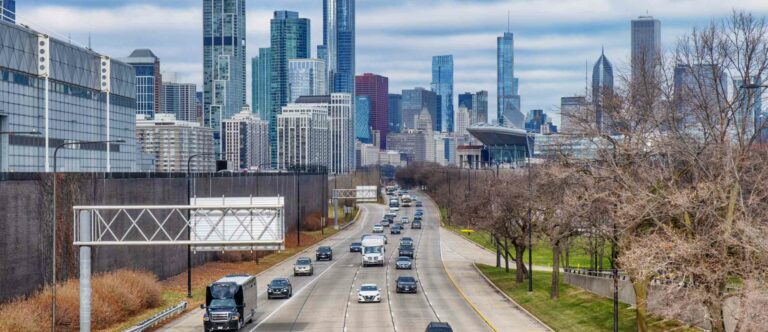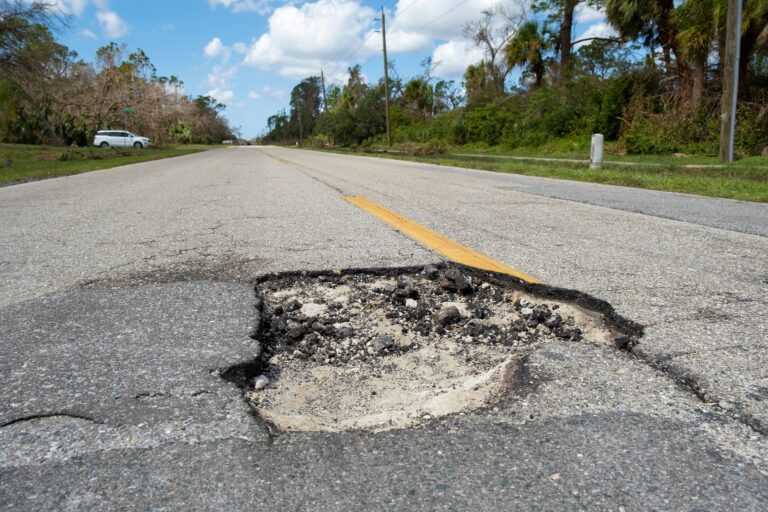The world stops. One moment, there is life and laughter and plans for dinner. The next, there is a phone call, a knock on the door, and a silence so profound it swallows all sound.
The news is impossible. A loved one is gone, their life extinguished in a violent collision with a massive commercial truck on a familiar stretch of the I-90 or the Dan Ryan Expressway.
As your family is crushed under an avalanche of grief, another world grinds into motion. This one is cold, corporate, and calculated. The trucking company, its insurance carrier, and its legal team are already moving. Their goal is not to comfort you.
Their goal is to protect their assets. They are building a defense while you are still trying to breathe. This is the brutal reality after a fatal truck accident. While you are facing the unimaginable task of planning a funeral, a powerful corporation is already working to minimize its responsibility for the life that was taken.
Key takeaways
- After a fatal crash, two investigations begin: the official police inquiry and the trucking company’s private investigation. Your family needs a third, independent investigation focused solely on proving the company’s negligence.
- Liability extends far beyond the truck driver. The trucking company, its maintenance contractors, the cargo loaders, and even the truck’s manufacturer can be held financially responsible for their role in the crash.
- Critical evidence, like the truck’s “black box” data and the driver’s logs, can be lost or legally destroyed within weeks. Taking immediate legal action is the only way to preserve the proof needed to build a strong case.
Two Worlds Collide: Your Grief and Their Damage Control
In the hours following a fatal commercial truck wreck, two very different stories unfold. Your family is consumed by shock and sorrow. You are surrounded by loved ones, trying to process an irreversible loss.
The trucking company, however, enters a state of high alert. They are not grieving; they are activating a rapid-response protocol designed for one purpose: damage control. Their priorities are purely financial and defensive.
The Trucking Company’s Playbook
Within hours, the company dispatches its own investigators and lawyers to the scene. Their objectives are clear and methodical. They are not there to uncover the whole truth, but to build a version of the truth that protects their bottom line.
This response team immediately begins working to control the narrative and the evidence. Their primary goals often include:
- Securing the truck’s electronic data recorder (“black box”) before it can be independently analyzed.
- Interviewing their driver to shape their official statement.
- Taking photos and measurements that support a defensive theory of the crash.
- Notifying their insurance carrier to begin managing the potential financial exposure.
This immediate, sophisticated response puts your family at a significant disadvantage. The company is collecting evidence and building its case while you are just beginning to comprehend your loss.
The Web of Responsibility: Who Is Actually Liable?
A common misconception is that the truck driver is the only person responsible for a crash. In reality, a commercial truck is a complex piece of industrial equipment operated as part of a large corporate enterprise.
The law recognizes this, and liability often extends to multiple powerful entities.
The trucking company (motor carrier)
The company that owns the truck and employs the driver is almost always a primary defendant. Their liability can stem from many different failures, not just the driver’s actions at the moment of the crash.
We investigate the company’s own negligence in its operations. Holding them accountable requires proving they failed in their fundamental duties. This can involve showing evidence of:
- Negligent hiring: Did they hire a driver with a known history of reckless driving, DUIs, or previous accidents?
- Inadequate training: Did they fail to properly train their driver on safety procedures, vehicle handling, or how to manage fatigue?
- Pressure to violate regulations: Did the company encourage or tacitly approve of drivers breaking federal hours-of-service rules to meet unrealistic deadlines?
- Poor maintenance practices: Did they cut corners on truck maintenance, allowing unsafe vehicles to remain on the road?
Under a legal principle called “vicarious liability,” the company is also generally responsible for the negligent acts of its employees while they are on the job.
Third-party maintenance and repair shops
Many trucking companies outsource their vehicle maintenance to third-party repair facilities. If a mechanical failure, such as brake failure or a tire blowout, caused the fatal crash, the shop that performed the faulty repair or inspection can be held liable for its shoddy work.
Cargo owners and loaders
The way a truck is loaded is critical to its stability. If a third-party company improperly loaded or secured the cargo, causing it to shift and the driver to lose control, that company can be a defendant in the case.
Overloaded trucks also violate federal regulations and create immense danger.
The Independent Investigation: Building Your Case for the Truth
The police report is only a starting point. To hold a trucking company fully accountable, your legal team must conduct its own deep and independent investigation.
This process is about uncovering the corporate negligence that set the stage for the driver’s final, fatal error.
Preserving the most critical evidence
Time is the enemy. The trucking company controls the most important evidence, and federal law allows them to destroy some of it after a relatively short period.
We act immediately to send a legal demand letter, ordering them to preserve every piece of relevant evidence. Our investigation focuses on securing the key data that tells the real story.
This is the proof that can expose a pattern of corporate negligence. Key evidence we fight to preserve includes:
- The Electronic Control Module (ECM): Often called the “black box,” this device records data on the truck’s speed, braking, and engine use.
- The Driver’s Electronic Logging Device (ELD): This tracks the driver’s hours of service, revealing any violations of federal fatigue rules.
- The Driver Qualification File: This contains the driver’s employment history, driving record, and drug test results.
- All Maintenance and Repair Records: These documents can show a history of mechanical problems that the company ignored.
Securing and analyzing this data requires specialized knowledge and resources. It is the foundation of a successful wrongful death claim.
The Legal Claims That Arise from a Fatal Accident
When a person is killed due to negligence, Illinois law allows the surviving family members to file specific types of civil lawsuits to seek justice and financial stability. These are separate from any criminal charges the driver may face.
The Illinois Wrongful Death Act
The primary claim is brought under the Illinois Wrongful Death Act. This claim is filed on behalf of the surviving spouse and next of kin for the losses they have personally suffered. The compensation, or “damages,” is meant to address the profound personal and financial toll of their loved one’s death.
The Illinois survival act
A second claim may be brought under the Illinois Survival Act. This claim allows the estate to recover damages that the deceased person could have sought if they had survived. This most often includes compensation for the conscious pain and suffering they endured between the moment of the crash and the moment of their death.
What Does “Fair Compensation” Mean in a Wrongful Death Case?
No amount of money can ever replace a human life. The legal system cannot bring back your loved one. What it can do is provide a measure of justice and the financial resources your family needs to face a future that has been permanently altered.
The compensation in a wrongful death claim is calculated to cover the full scope of your family’s losses. This includes both the tangible financial costs and the profound, intangible human losses you have suffered.
Reimbursing economic losses
These damages are meant to cover the direct financial harm caused by the death. A thorough claim calculates these costs far into the future to ensure your family’s stability. These include:
- The income and benefits your loved one would have earned over their lifetime.
- The loss of services, support, and guidance they provided to the family.
- Medical expenses incurred before their death.
- Funeral and burial expenses.
Acknowledging non-economic losses
These damages address the immense, personal grief and loss your family has endured. They are a legal acknowledgment of the human cost of the trucking company’s negligence.
This includes compensation for the loss of companionship, society, love, and the profound grief and sorrow suffered by the surviving family members.
FAQ for Fatal Truck Accidents
What happens if the truck driver also died in the crash?
Your family can still file a wrongful death claim. The lawsuit would be brought against the truck driver’s estate and, more importantly, against the trucking company they worked for. The company remains liable for its own negligence (like poor maintenance or hiring practices) and for the actions of its employee.
How long do we have to file a wrongful death lawsuit in Illinois?
The statute of limitations for filing a wrongful death claim in Illinois is generally two years from the date of the person’s death. While this may seem like a long time, it is critical to begin the investigation immediately to preserve evidence.
Will our family have to go to court?
Most wrongful death cases are settled out of court through negotiation. However, trucking companies and their insurers are aggressive opponents. We prepare every single case as if it will be presented to a jury. This reputation for being ready and willing to go to trial is our most powerful tool for securing a fair settlement for your family.
How can we afford a lawyer when we are dealing with so much?
Wrongful death attorneys work on a contingency fee basis. This means you pay absolutely no upfront fees. The law firm advances all the significant costs of investigating and litigating the case. The attorneys are only paid a percentage of the total financial recovery if they win the case for you.
A Path Toward Accountability
The path forward after such a devastating loss is long and difficult. While nothing can undo what happened, holding the responsible parties accountable can provide a sense of justice and the financial security your family needs to begin to heal.
If your family is grappling with the horrific loss of a loved one in a commercial truck crash, the legal team at Walner Law is here to provide the strength, compassion, and experience you need.
Contact us today for a free, confidential consultation to learn how we can help you fight for the justice your loved one deserves. Call us at (312) 410-8496 or fill out our online form to get started.


 Skip to content
Skip to content




